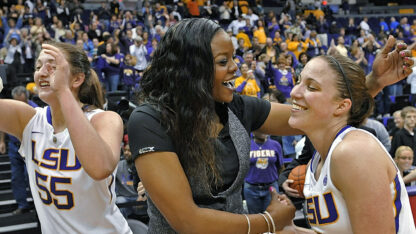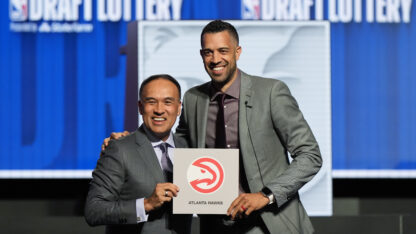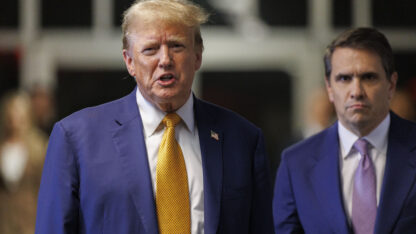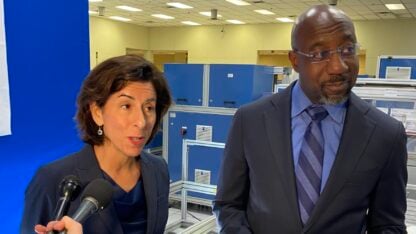Atlanta-based Overtime Elite is forging a new path to the NBA
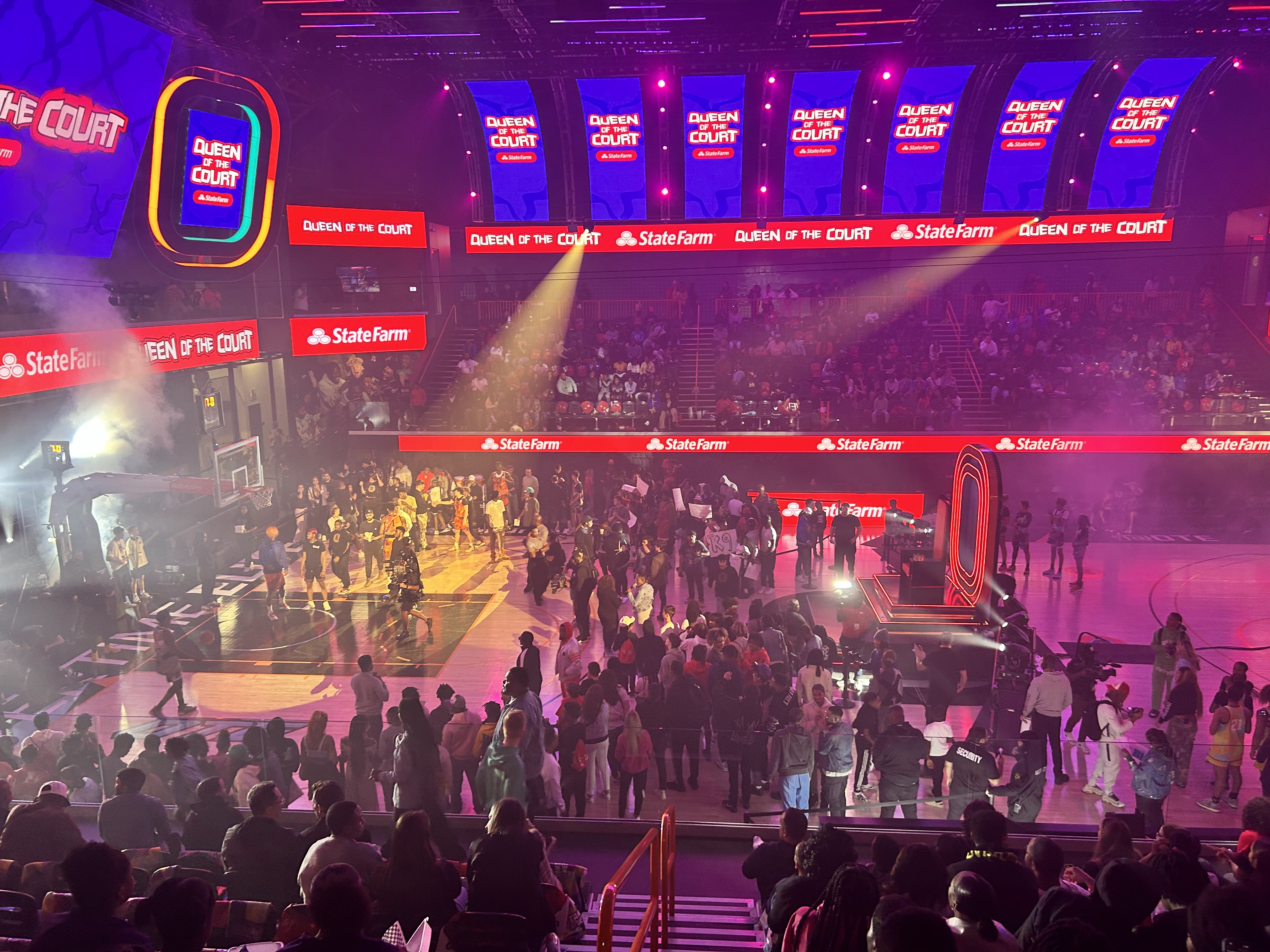
It’s late June, and hundreds of people gather in State Farm Arena, watching the NBA draft on a massive video board, waiting to see who the next NBA star could be.
As NBA commissioner Adam Silver calls Ausar Tompson from Overtime Elite, the crowd erupts.
Ausar and his twin brother Amen became the first pair of brothers selected in the top five picks of the NBA draft.
The 6’7 Thompson twins spent the last two years hooping for Overtime Elite at Atlantic Station in Atlanta’s Midtown.

The league offers high school athletes a minimum contract of $100,000 to play basketball in its private-school-meets-media-factory of a league.
The players have the option not to get paid upfront so they can play in college, with the contract then turning into scholarships for college.
According to Overtime Elite’s website, athletes engage in 3.5 to 4 hours a day of academic instruction consisting of NCAA-approved courses.
Overtime Elite officials declined to talk to WABE. Ryan Schmidt, head coach of the College Park Skyhawks G-League team, spoke of the significance of Overtime Elite.
“I think it’s an avenue and a platform for younger players … to expedite the professional process a little bit,” Schmidt said.
Amen and Ausar Thompson became the faces of Overtime Elite, and now they are the first NBA draftees to come from the program — in the top five.
“It will impact college basketball because you’re gonna have a certain amount of players that would have gone to college that will not now,” said Mike Petersen, the former head coach for the WNBA’s Atlanta Dream and one of the advisors for the team.
For some time, top high school players would go to a major college program for at least a year before declaring for the draft.
“The pathways to the league are much more diverse, right?” Petersen said.
This year, out of the first five players drafted, four took the non-college route — playing overseas, G-League Ignite, and Overtime Elite — compared to last year, when the first five drafted players came from a college or university.

Overtime Elite has expanded from three teams to eight teams with 16 to 20-year-olds from around the world.
And Daniel Starkman, general manager for the College Park Skyhawks, said that’s bringing even more NBA scouts to the area.
“Wherever there are players, NBA scouts are going to watch, so yeah, they’ve had success, which means people are going to come back,” said Starkman.
One of the league’s biggest criticisms is about the level of competition players face. Starkman says it matters more about what the players are bringing to the table.
“I approach every evaluation the same: you’re looking for certain things, certain players …What is your attitude? What is your effort? [How do you handle] the things in your control? It doesn’t matter who you’re playing against. If you don’t provide those,” he said.
Overtime Sports Inc. has investments from some big names Atlanta Hawks star Trae Young, Amazon CEO Jeff Bezos and the rapper Drake. The company makes money from constantly posting content of its players.
This has raised concerns about whether Overtime Elite players run the risk of being exploited.
Dr. Jabari M. Evans, an assistant professor of Race and Media at the University of South Carolina, recently wrote about the Atlanta-based program.
“Overtime saw an obvious gap where they could create this world of sports and entertainment online using players that hadn’t quite reached the ranks of the NBA yet,” Evans said. “And then understanding that the amplification of these young people will help them in the recruiting process.”
He says we can see examples of this with athletes like Ja Morant and Zion Williamson. In terms of exploitation, Evans says it’s too early to tell.
“I think the idea about exploitation is just the thought that it’s a business, and so anything that has capitalist-like ideologies, driving it is going to in some ways, have some risk and reward attached with it. It’s going to have some ethical decisions attached with it.”

Flau’Jae Johnson competed in the program last year.
“When I played here at OTE for the first time, I was kind of nervous,” Johnson said. “I ain’t going to lie. You know, seeing the lights, camera, action,” she said.
Johnson then went on to play for LSU, where she won a national title earlier this year.
“I think when I played a national championship, I felt those same nerves, but I was like, ‘Man, I already been here before, I already did this before.’ So being able to do that on a bigger scale was like OTE all over again,” Johnson said.
As Overtime Elite looks to keep adding to its pool of talented players, those players no doubt hope that the league can help deliver their dreams of NBA stardom. In the meantime, they can get paid for playing the game they love.
